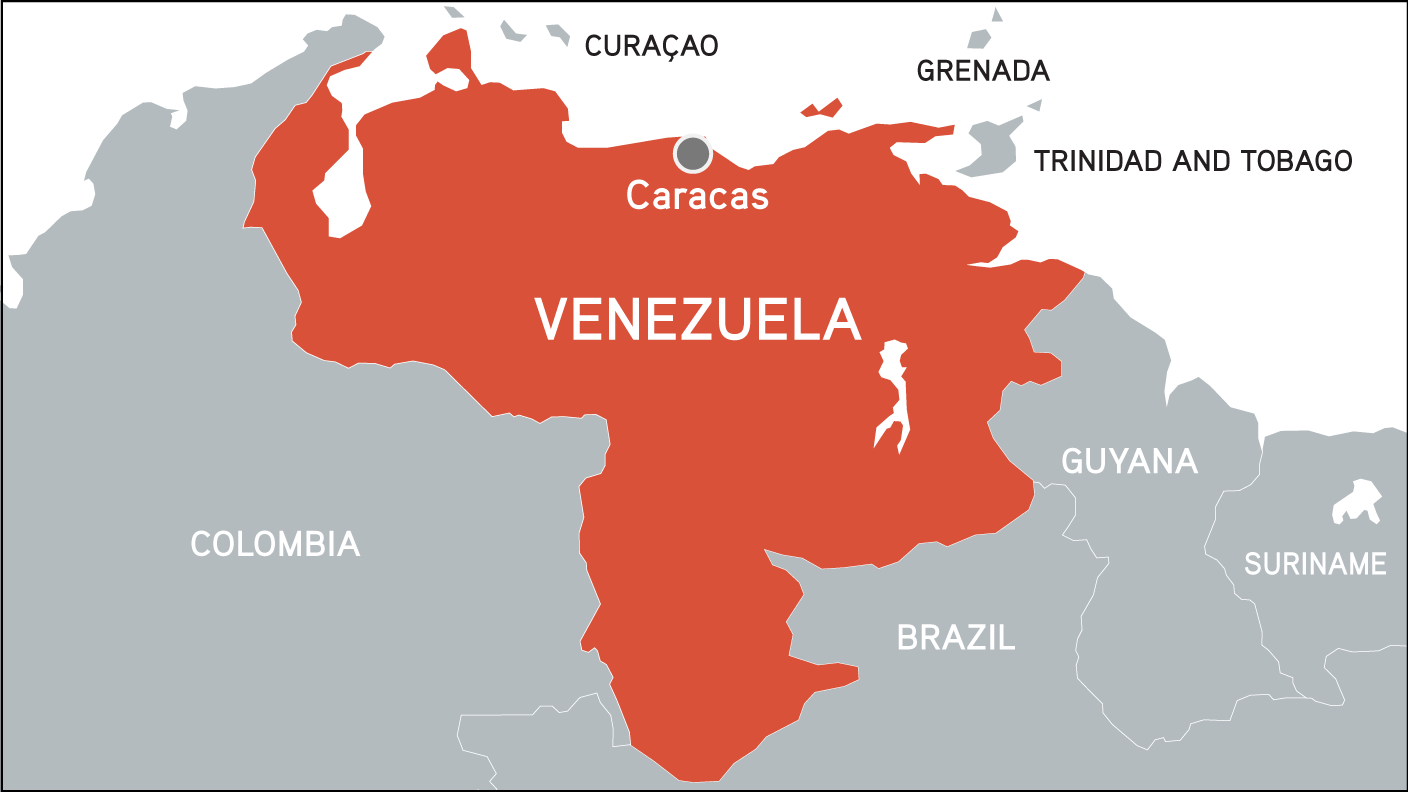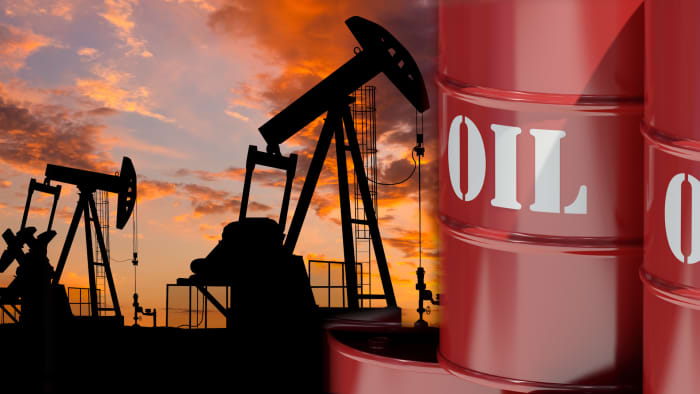Table of content
Venezuela has the world largest oil reserves hence produces oil and gas in most parts of the world. Oil production has been associated with increased economic development, employment creation, improvement of living standards (Roth, 2015, n.p). The essay will focus on whether oil is a blessing or a curse to Venezuela. It can be argued that oil production in Venezuela is more of a curse than a blessing based on various reasons that have been put forward.
It is argued that oil production has numerous social, economic, and environmental challenges that often characterize states producing oil. Inflation is one of the main challenges that have created economic unrest in the country. Additionally, water and air pollution have also been the major problems accompanying oil production.
Thesis statement: Oil is more bane in Venezuela regardless of its blessings.
Topic sentence: Oil is more of a curse in Venezuela for several reasons such as
It is evident that Venezuela is considered one of the world’s largest oil deposits and this should be related to increased national wealth, but this is not the case. It is argued that most of the Venezuelans live in extreme poverty. This is evident where most of the poor families live in shanties cities some of them sprawling over the hillsides across the capital Caracas. Despite the huge oil deposit that generates huge revenue for another country after exporting oil, the citizens of Venezuela live in poverty (News.bbc.co.uk, 2015).
The citizen’s access to social securities and amenities is very limited forcing the majority of them to experience the cycle of poverty. It is argued that economic fortunes from oil such as the 1970sboom benefited the few middle classes, but this was followed by a subsequent reduction of prices that forced the majority of the middle class to poverty. This occurrence forced most of the middle class to live in poverty eroding the living standards of those individuals considered already impoverished. The rate of unemployment in Venezuela is so high and based on the research 60 percent of the households in Venezuela are poor.

Venezuela is characterized by radical reforms and political unrest that has led to massive divisions in the country particularly during President Hugo Chavez term in office. There have been several street protests in Venezuela that were staged by the president’s supporters. The protest was related to the economic reforms that were developed by the president particularly the nationalization of the economy for instance in the oil sector.
It is believed that the economic reforms were aimed at expanding social programs targeting the poor in the society who were to benefit from the oil export revenues. However, critics within the country argued that the economic reforms have significantly damaged the nation’s economic performance and has led to increased economic unrest such as inflation. For instance, in the year 2009, the inflation rate was at 25 percent (Gelb, Eifert & Tallroth, 2002, p. 2899).
Venezuela is highly characterized by massive corruption that has eaten deep into the nation’s wealth. Corruption in Venezuela based on world standards is very high and has been argued to be prevalent across various levels of the Venezuela’s society. It is argued further, that the discovery of oil in the region has even worsened the level of political corruption. It is clear that corruption is difficult to be measured reliably, but Transparency International has ranked Venezuela among the world’s top20 most corrupt states.
For instance, despite Venezuela being one of the largest oil producers in the world, there is very little that can be used as an outward sign to show how the government uses approximately one trillion petrodollars that often flow into the nation. Corruption has deprived the nation an opportunity to develop economically. There are cases of funds mismanagement and misallocation leading to the increased corruption that damages the country.
Despite the numerous benefits that come with oil production, there various environmental drawbacks that have been argued to be linked to oil production and have affected the concerned country a great deal (O’Rourke & Connolly, 2003, p. 588). There are certain environmental, natural factors that have been experienced in Venezuela including, earthquakes, mudslides, floods, periodic droughts and even rockslides.
Venezuela was ranked among the world’s top ten countries regarding ecological diversity, however; the country suffered a massive environmental degradation. In the recent times, Venezuela was ranked the t third highest country in South America in terms of deforestation. For instance, the GuriDam in Venezuela as a result of the heavy production of oil flooded a massive area that forested and currently, the region is filled with silt that have deposited specifically by runoff from the heavily deforested area.
Oil production in Venezuela has also been associated with pressing environmental and ecological problems such as pollution of waterways, urbanization, gasoline consumed by automobiles. Typical activities that are associated with the drilling of oil and gas in Venezuela include the clearing of ground, removal of the massive vegetative cover, drilling, and construction blasting of rocks and ground for construction materials for pumping stations and compressors have impacted the environment.
Noise pollution often results during the drilling process and in the development stage moist caused by bulldozers, diesel engines, and the drill. Noise from blasting normally is sporadic and carries for distance. It is argued that noise produced particularly from blasting and drilling exceeds the US Environmental Protection Agency. The highest levels of noise occur from flaring of gas and the drilling process. Noise pollution thus is the main environmental challenge that Venezuela faces from oil production (Kokal & Al-Kaabi, 2010, p. 64).
Air quality is polluted by emissions that are normally generated during the drilling process. Further, there are other oil related processes that have been argued to be major contributors of pollution including, vehicle emission, diesel emission, storage of oil and particulates from the blasting activities (Brandt et al., 2006, p281). During excavating dust is emitted massively polluting the environment. The dust emitted from excavation and drilling activities decrease the forage palatability for the wildlife and other domestic livestock It is argued that dust emitted has increased the potential for dust pneumonia.
According to O’Rourke & Connolly, (2003, p. 587), there is also an impact on the ecological resources that arise as a result of the surface disturbance in addition to habitat fragmentation. Oil mining has led to the massive clearing of ground cover and forest clearing hence leading to loss of wildlife habitat and reduction of the plant diversity. As a result of this, there is increased soil erosion cases and te introduction of noxious weeds. Therefore, it can be argued that oil mining and production in Venezuela is more of a curse than of blessing to the country. This is because of the numerous negative environmental effects that have been related to oil production.
According to the Huffington Post, (2015), it can be argued that oil that is widely considered as the lifeblood of most nations such as Venezuela, it has turned out into an economic curse. This is evident where; oil controls the economic stability of the country. The oil price has been declining over time leading to economic instability to the country.
It can thus be argued that oil prices have been pushing the economy of Venezuela to collapse. A substantial decline in oil price has been witnessed in Venezuela and as a result of this, prices of oil have been brought down to a five-year low. The slump in the prices of oil tends to benefit consumers specifically by increasing consumer’s real income and at the same time reducing the production cost, but it presents a major challenge to Venezuela oil-rich economy. The effect of the global plunge in the oil price in Venezuela has impacted negatively on the economy of the country.
It is evident that Venezuela is the world’s seventh-largest oil exporter by the year 2013 and derives most of its export earnings from oils sector. It is believed that Venezuela is vulnerable to date price fluctuations and a reduction in prices will mean the loss to the government. During the oil bonanza, there was an economic mismanagement and was masked by a soaring oil revenue that initially were used for financing the social programs. The inflation rates in Venezuela are thus expected to reach triple digits that will impact negatively on the economy. Inflation is thus the major challenge that will face Venezuela characterizing oil prices hence the economic stability (Rodrı́guez, 2000, p. 273).
Based on the analysis above, the thesis statement was that oil is considered to be more bane in Venezuela regardless of its blessings. Therefore, based on the negative effect of oil production, oil production is more of a curse that blessing. Oils production in Venezuela is thus more of a curse than a blessing based on the social, economic, and environmental impact and issues related to oil. Therefore, despite the numerous benefits that are associated with it has several drawbacks particularly of economic unrest, pollution, ecological destruction and poverty issues.
References
Brandt, R., Merkl, N., Schultze-Kraft, R., Infante, C., & Broll, G. (2006). Potential of vetiver (Vetiveria zizanioides (L.) Nash) for phytoremediation of petroleum hydrocarbon- contaminated soils in Venezuela. International journal of phytoremediation, 8(4), 273- 284.
Gelb, A., Eifert, B., & Tallroth, N. B. (2002). The political economy of fiscal policy and economic management in oil-exporting countries. World Bank Policy Research Working Paper, (2899).
Kokal, S., & Al-Kaabi, A. (2010). Enhanced oil recovery: challenges & opportunities. World Petroleum Council: Official Publication, 64-68.
O’Rourke, D., & Connolly, S. (2003). Just oil? The distribution of environmental and social impacts of oil production and consumption. Annual Review of Environment and Resources, 28(1), 587-617.
Rodrı́guez, J. P. (2000). Impact of the Venezuelan economic crisis on wild populations of animals and plants. Biological Conservation, 96(2), 151-159.
News.bbc.co.uk,. (2015). BBC News – Venezuela country profile. Retrieved 6 December 2015, from http://news.bbc.co.uk/2/hi/americas/country_profiles/1229345.stm
The Huffington Post,. (2015). Has Chavez Squandered Venezuela’s Future?. Retrieved 6 December 2015, from http://www.huffingtonpost.com/2012/09/23/venezuela-oil-production_n_1907170.html
Roth, C. (2015). Venezuela’s Economy Under Chavez, by the Numbers. WSJ. Retrieved 6 December 2015, from http://blogs.wsj.com/economics/2013/03/06/venezuelas-economy-under-chavez-by-the-numbers/
